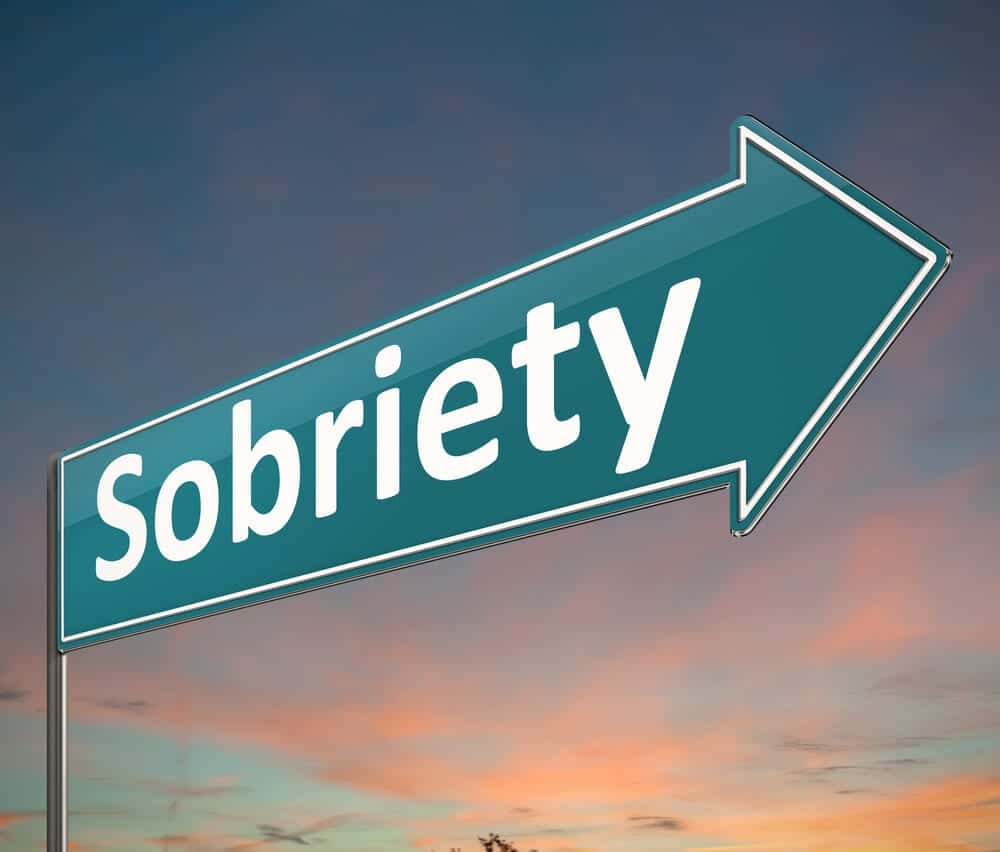
Long Term Sobriety for Your Teen
Completing an addiction treatment program may be the hardest thing that a teen has had to do in their short life. Unfortunately, once a teen leaves a residential program, the journey of long-term sobriety is just beginning. Maintaining it requires hard work, lifestyle changes, and continued support.
It is like learning how to live all over again, just differently. This time around, a teen has a guide to help maneuver through the ups and downs, the good days and the bad days, the temptations and distractions. It will be up to the teen to take what they have learned from the trained professionals at the treatment center and apply it to their everyday lives in the real world.
Although the journey may be different from that of other teens and may be difficult at times, it is possible for a teen to live a life of long-term sobriety. By incorporating several habits into their daily routine, a teenager can successfully navigate life on a daily basis, avoid relapse and live successfully in their new life of sobriety. It is important to note that unless change occurs after a teen leaves a treatment center, it is highly likely and probable that they could slip back into their old life, with the same temptations, behaviors and habits. To ensure long-term sobriety, it is critical that a teen make changes in their life; routine, people and places.
This journey towards long-term sobriety will in fact be different for each person recovering from addiction but here are ten tips that can be implemented to help with their recovery plan.
1- Support Groups.
The process of recovery has been difficult enough; a teen cannot be left to handle the challenges of every day life alone. Support groups provide teens recovering from addiction with the necessary assistance, guidance and encouragement that they need to manage their sobriety.
It may be difficult for a teen assimilating back to school and social circles after leaving a treatment program, causing them to feel alone and isolated. The support and reassurance of other recovering addicts is exactly what a teen needs to be able to reenter the world with their new habits, trying to identify a new social circle and adjusting to life without the influence of drugs or alcohol.
Finding a group of supportive, understanding individuals who have gone through similar situations is probably the most important thing to help ensure a teen’s long-term sobriety.
2 – Honesty.
The word honesty and sobriety are nearly synonymous in terms of long-term sobriety. Since denial and not being truthful with self and others may have been part of the teen’s underlying challenges, leading towards addiction, being completely truthful with himself or herself is crucial to avoiding a relapse and staying on the straight and narrow.
But what does honesty mean? Lying and deceit may have become second nature to a teen struggling with substance abuse and addiction. Before receiving treatment, it was probably normal for a teen to do and say whatever was necessary to obtain the substance of choice and mask their problem. In fact, dishonesty may be a sign that a teen is slipping into relapse. For those in recovery, honesty with themselves and others is a sign of health and recovery.
It is difficult to make any progress if the challenges and underlying reasons for the problems are being hidden and denied. As part of a treatment program, teens learn that in order to become free from their challenges and their addiction, they first have to recognize their problems and accept that they need help. To do this is to be completely honest and open with themselves and their caregivers.
Returning to everyday life will require a teen to continue being honest about their feelings and emotions and acceptance of the circumstances even if these feelings make them uncomfortable. Honesty is the only way that a teen will successfully manage life without substance dependency and avoid relapse.
Honesty is also key to building relationships or in some cases, rebuilding relationships. Because of the nature of the disorder before treatment, dishonesty probably took priority over sound, caring relationships. A teen may have pushed away loved ones with their deceitful ways, tendencies to lie and erratic behavior. Honesty will be critical to re-establishing trust and confidence in the relationship for all parties especially since the teen will rely on these individuals for support, compassion, and assistance.
The bottom line is that honesty must be a foundation of life for a teen to be successful in the quest for long-term sobriety.
3 – Exercise.
Although it seems natural that exercise would be important to everyone, exercise is extremely important for teens and their long-term goal of sobriety. When we engage in physical activity, endorphins and oxygen flow through our bodies, giving us a natural high and making us feel accomplished and good about ourselves. It also provides for an emotional outlet where substances were once used for this purpose. Creating and sticking to an exercise routine also creates a schedule whereby providing less idle time in which temptations can creep in. A teen who implements exercise as part of their recovery plan is more likely to remain sober for the long haul.
4 – Meditation.
During the recovery and rehabilitation program, a teenager probably learned to quiet their mind and be in the moment through meditation. Using it as a tool, teens can learn to enjoy who they are, appreciate what they have and curb the desire to be someone else. Continuing the practice of meditation on a regular basis helps a teen to remain grounded, to utilize the coping mechanisms that they learned and look inward for strength and guidance.
5 – Charity.
You might think that focusing on one’s own recovery and self may be of primary importance to long-term sobriety. In fact, research has shown that when people give back to others, they are more likely to be distracted from their own challenges and feel a sense of joy and accomplishment from helping others. Now, this does not mean that a teen has to go out and start up a soup kitchen or cut the lawn of elderly neighbors. What it does mean is that they should find something that gives them pleasure and do it wholeheartedly.
Giving back may mean sharing their journey and struggles with other teens to encourage them that there is hope. It may be as simple as posting inspirational and motivating blogs or articles. Whatever the mode of giving that a teen chooses will be the right one to help them on their road to long-term sobriety.
6 – Create a schedule.
As it was mentioned before, adding exercise as a routine can be extremely beneficial to a teen’s recovery plan. Just as chaos and disorder can bring on strong emotions and temptations to drink or abuse substances before recovery, an unstructured schedule and day can bring on these feelings after treatment as well. It is important to implement a daily and weekly schedule including exercise, support groups and charity work to help a teen maintain a sense of control and to avoid risky situations.
7 – Find balance.
One mistake that many teens make after treatment for an addiction is substituting a new addiction in its place. Teens may find themselves compulsively approaching their new habits with conviction, dedication and even extremity so as to prevent a relapse.
However, aggressively diving into anything, even healthy behaviors such as exercise or a support group, may push their behavior to the other extreme. For example, if a teen now finds comfort and relief from exercising, it has the potential of becoming an obsession or possibly even eating disorder rather than a healthy addition to the recovery plan. Each of the new habits should be approached with moderation and balance in mind.
As a caregiver, any extreme behaviors, whether positive or negative, may become cause for concern and should be addressed with the teen’s medical professionals and/or therapists.
8 – Forgiveness.
Mistakes happen. Even as adults, people make mistakes every day of their lives. It is what they do after the mistake happens that is important.
When it comes to recovery, a slip up is not the end of recovery or a total relapse, but it is a mistake that requires forgiveness especially towards themselves. It is common for many teens recovering from substance or alcohol abuse to slip up within the first 30 days.
If a teen believes that they have made such a terrible error in judgment that it is not recoverable, they may emotionally become consumed with the mistake, pushing them back into use and relapse. If on the other hand, the teen can say “ok, I slipped today. Tomorrow is another day and I will start fresh”, the mistake can be just that – a mistake!
But until forgiveness is put in place, every stumble or slip up will seem like the end of the world, the end of sobriety and may initiate a downward spiral into relapse.

9 – Friends.
Unfortunately, at this extremely impressionable time in their lives, teens are heavily dependent upon their friends and in social settings for their self-worth and social acceptance.
Research shows that up to 70% of teens who relapse after a treatment program do so because of social pressures. For this reason, and for this reason alone, it is critical for a teen to make new friends once they are on the road to a life time of sobriety. Even well-intentioned friends may unknowingly tempt a teen by talking about their own experimenting, purchasing alcohol or having drug paraphernalia around.
In order for a teen to stick with their recovery plan and to avoid relapsing, the friend group must change to one that is more encouraging and offers less opportunity for a teen to be tempted.
10 – Signs of relapse.
It is important for both teens and caregivers to understand and recognize the signs of relapse. Although it is certainly possible that teens will slip up after treatment, a full relapse may be prevented if caught early.
Warning signs of a relapse may include: spending time in a high-risk environment or with “old” friends, feeling frustrated with the recovery plan, accepting that occasional slip-ups are ok, deciding NOT to attend support group sessions, becoming defensive or threatened by any discussions about recovery, and of course, dishonesty.
Drastic changes in behavior or appearance or problems at school may be other indicators that a teen may be lined up for a relapse or at the least, may be struggling with sobriety.
Unfortunately, long-term sobriety is a struggle for many adults and teens alike. It is estimated that up to 80% of those in recovery may relapse during their lifetime. The tips provided here are meant as a guide for what a teen can do to prevent a relapse. It will also serve to give a parent some guidance as to signs to look for if a teen may be heading towards a relapse. It is important to note that long-term sobriety is possible. With the right support system and habits in place, a teen may live a life-time of sobriety and fully reach their potential and purpose in life.
With the support and guidance of trained professionals at Beachside treatment center – which offers aftercare after residential treatment, a teen will be well-equipped with the tools and resources to launch them into a journey of long-term sobriety. Contact us today for a free consultation!




